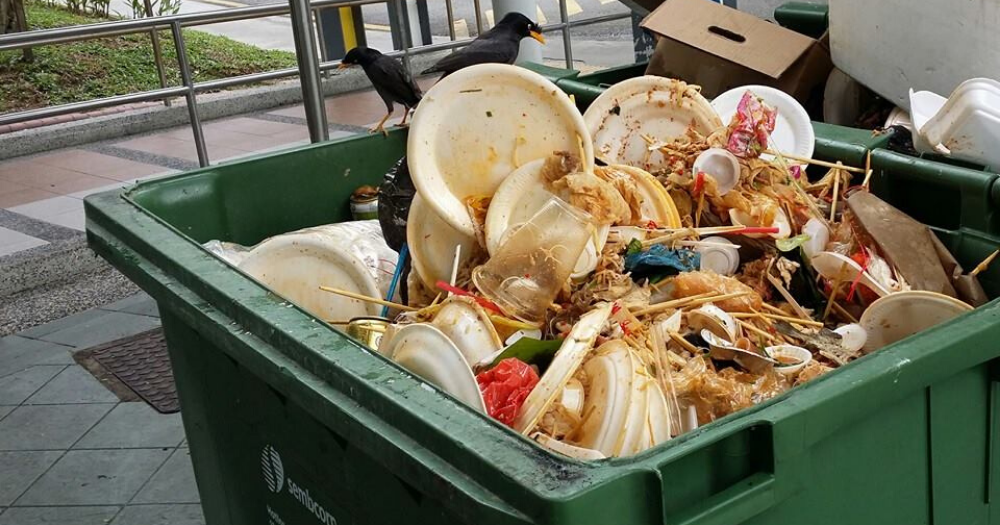A 2019 survey conducted by the National Environment Agency (NEA) has found that more Singaporeans are becoming conscious about the food waste they produce.
In a press release, NEA stated that the findings were "encouraging", and point to an increasing awareness on the need to reduce food wastage in tiny, resource-constrained Singapore.
More people conscious about food wastage compared to in 2015
The survey, which involved face-to-face interviews with 1,000 randomly selected household representatives, quizzed people on their eating, shopping, cooking and catering habits.
In general, NEA discovered that eight in 10 people are bothered when uneaten food is thrown away. This appears to have been reflected in respondents' day to day habits.
When it comes to eating out, respondents were found to be more conscious about their food waste.
64 per cent leave no leftovers when eating outside, a five per cent increase from the previous survey in 2015.
56 per cent will take away unfinished food when dining out, a 12 per cent increase from 2015.
Around 70 per cent also try to use leftover ingredients from the fridge for cooking.
While shopping, around one-third are open to purchasing fruits or vegetables with slight imperfections, while 38 per cent is open to buying discounted expiring food.
To reduce buying unnecessary items on a whim, 43 per cent also prepare grocery shopping lists before heading to the market.
This consciousness apparently even translates to catering—six out of 10 say they would cater for only the exact number or fewer guests, instead of over-catering.
While these numbers are encouraging, the survey also highlighted areas for improvement—for example, one-quarter of respondents stated they buy more than needed when grocery shopping. This was mainly due to the concern that household members should have more to eat.
Growing awareness of food wastage
The survey also found that eight in 10 are aware of the environmental impact of food wastage. This growing awareness might not be surprising, considering the outreach and education activities NEA and non-governmental organisations have been conducting.
Aside from advocating action to reduce food waste in schools, NEA also launched a Towards Zero Waste Grant in early 2019 to support around 270 ground-up initiatives in the form of events and projects.
Some ground-up activities to reduce food waste include charity Food From The Heart, which redistributed surplus food to underprivileged families, as well as Food Bank Singapore's Cooked Food Rescue programme.
And it seems that these initiatives might have paid off—in 2018, 763,100 tonnes of food waste was generated, a drop from 809,800 tonnes in 2017.
Ways to reduce food waste
Respondents of the NEA survey stated that they would be motivated not to waste food if helps them to save money and protect the environment.
However, many felt that more information on how to store food and ingredients so that they would last longer, and how to share surplus food, could help them reduce food waste.
For the festive season, NEA has thus shared several tips to encourage members of the public to buy, order and cook in sufficiency and not excess.
These include:
- Avoid preparing more food than needed for gatherings. For example, cater 10 to 15 per cent less than required for the number of guests expected,
- Carbohydrate foods are usually the most commonly wasted dishes. Cater less for rice and noodles,
- Avoid perishables as gifts,
- Plan a use-it-up meal for leftover food.
For a quick breakdown of the survey results, you can check out this infographic here.
You can find more information on how to reduce food waste here.
Top photo from Zero Waste Singapore / FB
If you like what you read, follow us on Facebook, Instagram, Twitter and Telegram to get the latest updates.
